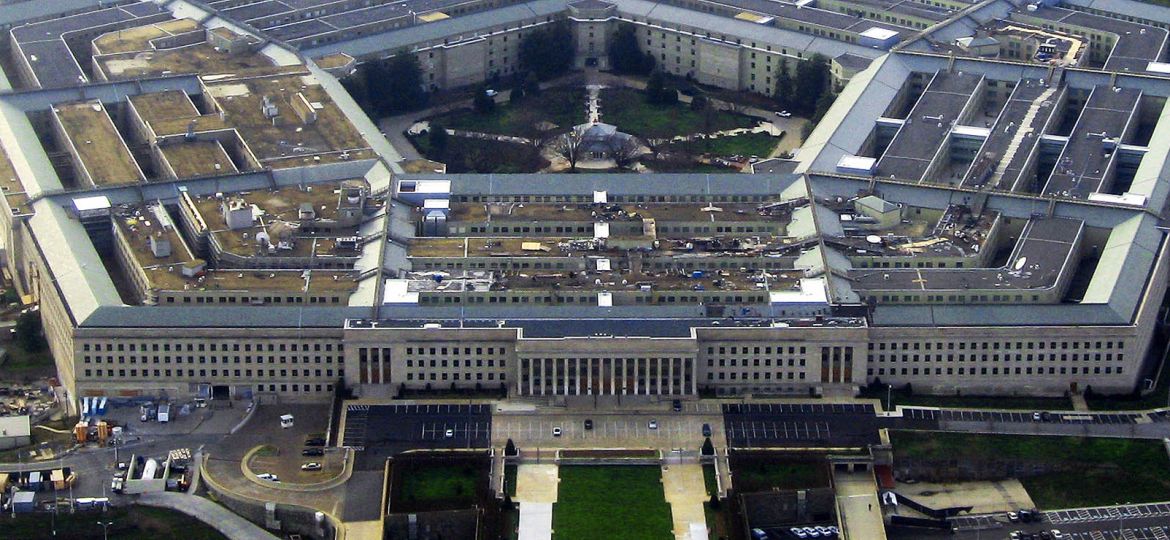
WHY THIS MATTERS IN BRIEF
Blockchains immutability could be the key to keeping the US military’s assets and nuclear arsenals secure.
The number of organisations and sectors that have been rolling out and experimenting with blockchain over the past year has been steadily increasing as it begins to look like the technology will live up to its promise of being more revolutionary than the internet itself. Now it turns out that the technology could be an invaluable tool for helping the US military revolutionise the entire service.
DARPA, the primary research arm of the US Department of Defense, which is behind endeavours such as drone dragnets, hypersonic vehicles and AI robo-hacking programs is currently funding efforts to find out if blockchains could help secure highly sensitive data – with potential applications for everything from keeping the nuclear arsenal safe to securing military satellites and building secure, self destructing messaging apps. And if the research goes well then the Pentagon could begin the process of rolling blockchain out to the entire US military creating what would quickly become the world’s largest blockchain implementations by far.
The case for using a blockchain boils down to a concept in computer security known as “information integrity.” That’s basically being able to track when a system or piece of data has been viewed or modified. DARPA’s program manager behind the blockchain effort, Timothy Booher, offered this analogy:
“Instead of trying to make the walls of a castle as tall as possible to prevent an intruder from getting in, it’s more important to know if anyone has been inside the castle, and what they’re doing there,” he said.
A blockchain is a decentralized, immutable ledger sometimes referred to as Decentralised Ledger Technology (DLT). Blockchains can permanently log modifications to a network or database, preventing intruders from covering their tracks. In DARPA’s case, blockchain tech could offer crucial intelligence on whether a hacker has modified something in a database, or whether they’re surveilling a particular military system.
“Whenever weapons are employed … it tends to be a place where data integrity in general is incredibly important,” Booher says, “so nuclear command and control, satellite command and control, command and control in general, [information integrity] is very important.”
In September, DARPA awarded a $1.8 million contract to a computer security firm called Galois. The firm’s assignment is to formally verify – using mathematics to create a computer-code audit – a particular type of blockchain supplied by a company called Guardtime. Formal verification of the code is seen as one way to build nearly unhackable code and it’s a big part of DARPA’s cyber security initiative.
If the verification goes well, it would inch DARPA closer to using some form of blockchain technology for the military, Booher says.
“We’re certainly thinking through a lot of applications,” he says.
“As Galois does its verification work and we understand at a deep level the security properties of this technology then I would start to set up a series of meetings with the rest of the agency to start that dialog and move everything to the next stage.”
The prospect of the US military using a blockchain to secure critical data could spark a boom in uses of the technology outside finance.
In the first quarter of 2016 Investors poured over $300 million into blockchain startups and while many of those firms were focused on the financial services industry the number of use cases and sectors are expanding rapidly. Nonetheless information security represents a huge new market for blockchain tech vendors, accounting for $75 billion in spending last year, and projected to hit $108 billion in 2019, according to forecasts by market research firm Gartner.
In an age of mega-hacks on corporations an indelible record that detects tampering has its attractions.
“We want to provide an extremely high level of trust … what this work is after is the highest level possible,” Booher says, “if someone is driving a combat vehicle, flying an aircraft, commanding a satellite, we want to make sure their focus is 100% on that mission.”
















